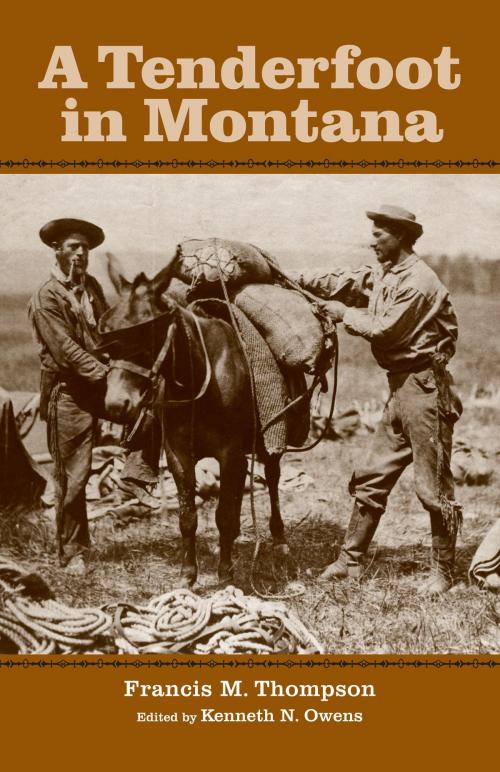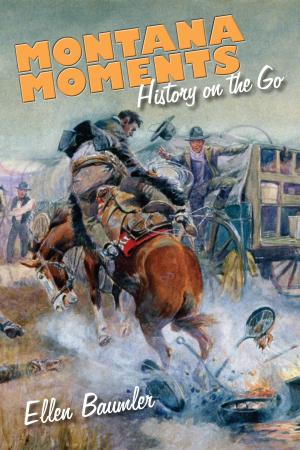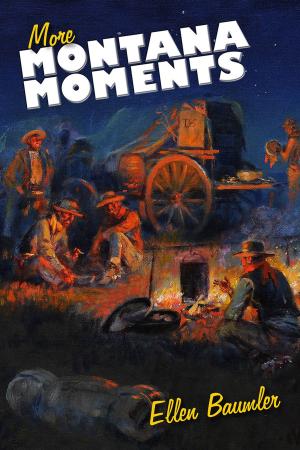A Tenderfoot in Montana
Nonfiction, History, Americas, United States, State & Local, Biography & Memoir, Historical| Author: | Francis M. Thompson, Kenneth N. Owens | ISBN: | 9781940527086 |
| Publisher: | Montana Historical Society Press | Publication: | October 9, 2013 |
| Imprint: | Language: | English |
| Author: | Francis M. Thompson, Kenneth N. Owens |
| ISBN: | 9781940527086 |
| Publisher: | Montana Historical Society Press |
| Publication: | October 9, 2013 |
| Imprint: | |
| Language: | English |
Frank Thompson’s lively memoir details his experiences in the upper Missouri country at the beginning of the Montana gold rush. A young man at the outset of the Civil War, Thompson supported the Union cause but realized that military life was not for him. Turning to the frontier, he headed west aboard a steamboat from St. Louis in 1862, arriving at Fort Benton in what would later become Montana Territory.
Thompson’s sojourn was relatively brief—he returned east after only two and a half years. But in that time he hunted for gold, ran a Bannack mercantile business, traveled to the Pacific Coast and back, served in Montana’s first territorial legislature, and became a speculator in mining properties.
Thompson also formed a relationship with controversial sheriff Henry Plummer. Thompson knew the sheriff well, but he early stated his dark suspicions about the gold camp lawman. Drawing from his intimate knowledge of the circumstances and players involved, Thompson vividly describes one of the deadliest incidents of vigilante justice in U.S. history.
A self-styled tenderfoot, Frank Thompson recalls his days on the mining frontier with clarity and insight, making him an unmatched eyewitness of Montana’s formative era.
Frank Thompson’s lively memoir details his experiences in the upper Missouri country at the beginning of the Montana gold rush. A young man at the outset of the Civil War, Thompson supported the Union cause but realized that military life was not for him. Turning to the frontier, he headed west aboard a steamboat from St. Louis in 1862, arriving at Fort Benton in what would later become Montana Territory.
Thompson’s sojourn was relatively brief—he returned east after only two and a half years. But in that time he hunted for gold, ran a Bannack mercantile business, traveled to the Pacific Coast and back, served in Montana’s first territorial legislature, and became a speculator in mining properties.
Thompson also formed a relationship with controversial sheriff Henry Plummer. Thompson knew the sheriff well, but he early stated his dark suspicions about the gold camp lawman. Drawing from his intimate knowledge of the circumstances and players involved, Thompson vividly describes one of the deadliest incidents of vigilante justice in U.S. history.
A self-styled tenderfoot, Frank Thompson recalls his days on the mining frontier with clarity and insight, making him an unmatched eyewitness of Montana’s formative era.















